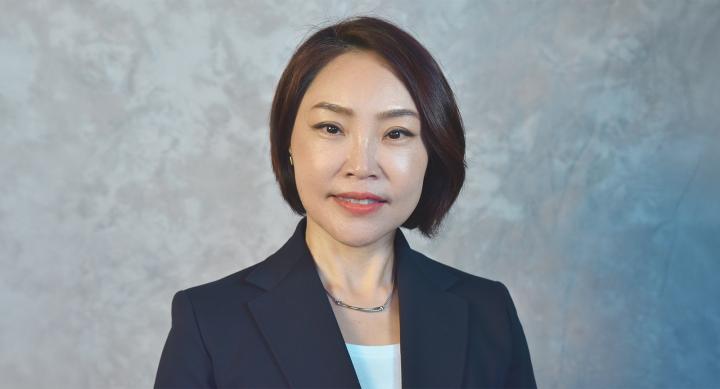
Jung Kwak, PhD, MSW, FGSA, associate professor at The University of Texas at Austin School of Nursing, has received the Health IT Speedy Proposal Assistance and Research Knowledge (Health IT SPARK) Grant from the UT Austin School of Nursing’s Center for Healthcare Innovation and Technology Advancements (CHITA), supported by the Dean’s Office.
Kwak’s project, "A Virtual Co-Pilot for Dementia Care Navigation," will explore innovative ways to support caregivers and patients in navigating dementia care through technology-driven solutions. The grant provides $10,000 in funding to support the work, which officially begins on Sept. 1, 2025, and will continue through Aug. 31, 2026.
“Dementia care is one of the most pressing health challenges of our time,” Kwak said. “In Texas, the impact is especially significant—our state ranks third in the nation for the number of people living with Alzheimer’s and second for Alzheimer’s-related deaths. About 1 in 6 Texans ages 45 and older are living with Alzheimer’s or a related dementia, and many also face multiple chronic health conditions. These realities place enormous pressure on families, communities, and the healthcare system. Research shows that navigation support can delay institutionalization, reduce caregiver stress and improve quality of life.”
By combining AI with frontline navigation, this research has the potential to close critical gaps between health care and community systems—especially for underserved populations most vulnerable to falling through the cracks.
This grant supports the development of an AI-powered prototype designed to assist community health workers (CHWs) and other dementia care navigators. Building on their successful pilot of CEDART—a care transition intervention that embeds CHWs to support persons living with dementia and their caregivers during hospital-to-home transitions—Kwak’s team aims to make the navigation process more efficient. Findings from CEDART show that navigators spend significant time managing fragmented information, changing eligibility rules and complex documentation. The SPARK project will expand on the existing CEDART tools to create the foundation for a digital platform that delivers real-time, personalized guidance—helping navigators connect families to the right services at the right moment.
“Caregivers often tell us they feel overwhelmed during transitions of care, especially after a hospital stay,” Kwak said. “They have to figure out transportation, in-home support and benefits—all while coping with the stress of dementia caregiving. Our work is designed to ease that burden by equipping CHWs with better tools and information, so that caregivers receive clear, individualized and timely guidance. Ultimately, this helps caregivers feel less alone and more supported in navigating complex systems.
This milestone will further advance the School’s commitment to leading-edge research in health technology and patient-centered care.
The Health IT SPARK Grant represents an important step in fostering innovation and supporting faculty in translating research ideas into meaningful solutions for real-world health care challenges.
“Our ultimate goal is simple: to make navigating dementia care less overwhelming and more person- and caregiver-centered,” she concluded.